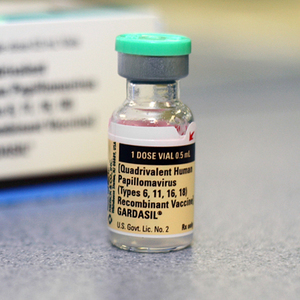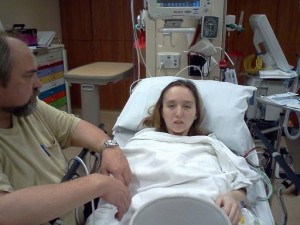Controversy about Gardasil and Cervarix related injuries surrounds the HPV vaccine. Almost to a tee, major medical centers, presumed thought leaders, post market surveillance, regulatory agencies and the press, promote the safety of these vaccines. It is incomprehensible to these organizations that such a perfect vaccine could cause serious injury or death. Any new report suggesting otherwise is quickly and summarily rejected, the families of the young women injured or killed are lambasted. Rarely, does anyone standup and support the injured, lest they too be considered among the fringe. All the while, girls and women and their families continue to be injured or even worse lose their lives, by what pro-industry PR suggests are unexplained reasons.
Well, explain them damn it. If it is not the vaccine, then what? Neither the post-vaccine reactions nor the deaths are random and though the culprits may be complicated, basic human decency, not to mention medical ethics demand that we make an effort to understand the causes of the adverse reactions so that we might prevent them.
Looking for Clues
A group of researchers from University of British Columbia are attempting to do just that – to understand the constellation of adverse reactions reported post vaccine. In one of their latest reports, published last fall in the open access journal Pharmaceutical Regulatory Affairs, they uncovered evidence of a deadly and difficult to diagnose condition called cerebral vasculitis.The syndrome fits clinically based on the presentation of symptoms reported. The study is not without problems and certainly not without criticism from industry. Here is a review and my thoughts on the research and the reactions to the study from industry and regulators.
What is Vasculitis?
Vasculitis is an autoimmune mediated attack within the walls of the blood vessels, that weaken and sometimes necrotize or kill the vessel. The central feature of vasculitis is the inflammatory destruction of the blood vessel. Vasculitides, as they are called, can develop anywhere in the body, in large or small vessels. Where the vasculitides develop and the size and type of vessels involved determines the types of symptoms that present and how the functioning of the injured physiological system will be affected. As a result, the symptoms often appear heterogeneous and non-specific, making vasculitis very difficult to diagnose – unless one was looking for it. This report suggests that we ought to begin looking for it.
Peripheral and Cerebral Vasculitis
When vasculitis occurs in the body – peripheral or systemic vasculitis, symptoms include but are not limited to:
- distinct skin rashes (click link to see image)
- excessive fatigue (tiredness)
- weakness
- fever
- joint pains
- abdominal (stomach) pain
- gastroparesis
- kidney problems (including dark or bloody urine)
- Graves’ Disease or Hashimoto’s thyroiditis
When vasculitis develops in the central nervous system – the brain and the spinal cord, symptoms include but are note limited to:
- nerve problems (including numbness, muscle weakness, and pain)
- severe headaches that last a very long time
- strokes or transient ischemic attacks (“mini-strokes”)
- forgetfulness or confusion
- delirium and/or depressed consciousness
- problems with eyesight (likely problems with hearing, but no cases cited)
- speech problems
- emotional regulation problems
- seizures or convulsions
- encephalopathy (swelling of the brain)
- sensation abnormalities
Cerebral vasculitis, also called autoimmune encephalitis, represents one of the rarest forms of vasculitis because it requires the toxin or mediator to cross the blood brain barrier. Current estimates suggest an annual incidence of only 1-2 cases of cerebral vasculitis per million adults. Cerebral vasculitis is also the most deadly, as the immune system mediated attack of the small to medium blood vessels in the brain often leads hemorrhagic or ischemic stroke and can lead to death.
Gardasil Autopsy Reports
The current study, Death after Quadravalent Human Papillomavirus (HPV) Vaccination: Causal or Coincindental? examined the brain tissue of two young women who died suddenly after receiving the HPV vaccine, Gardasil. One of the young women was 19, healthy, medication free and had no previous medical history. She died in her sleep after being given the third dose of the vaccine, which elicited an apparent exacerbation of symptoms that had developed soon after the first dose.The symptoms that emerged after her first dose included: warts on her hands, fatigue, muscle weakness, tachycardia, chest pain, tingling in her extremities, irritability, confusion and memory lapses or amnesia.
The other young woman was 14 years old, had a history of migraines and was using oral contraceptives. Within two weeks of her first dose, she developed a constellation of symptoms that included exacerbation of migraines, speech problems, dizziness, weakness, inability to walk, excessive vomiting, depressed consciousness, confusion, amnesia. Two weeks after the second dose, she was found dead in the bathtub by her parents.
The original autopsies for each the young women revealed no abnormalities and no precise cause of death. With the second girl, the coroner noted cerebral edema and what is called cerebellar herniation – a condition where brain swelling pushes against lower brainstem compressing the region responsible for respiration (breathing) and heart function. Even though histopathology was done as part of the autopsy, the coroner’s reports provided no indication of which antibodies were used for histology investigations, suggesting only general and non-specific histopathology, making it near impossible to determine if the HPV vaccine was in involved.
Advanced Immunohistochemistry
Without the appropriate immunohistochemical (IHC) examinations, using specific antibodies to tag the antigens used in the HPV vaccine, there was no way for the coroner to determine whether the HPV vaccine elicited or contributed to the deaths of these girls. Knowing this, the current researchers developed a specific IHC to examine the brain tissue and determine whether the vaccine was responsible. What they found was disturbing, but incredibly important.
The IHC from this study found evidence of autoimmune cerebral vasculitis triggered by the HPV16L1 component of the vaccine. HPV16L1particles were identified all over the cerebral vasculature including adhering to the vessel walls. They also observed an increased expression of the complement of immune markers consistent with vasculopathic syndromes. These included:
- Excessive adhesion of T lymphocytes
- MHC- II signaling and deposition of immunoglobulin G-immune complexes to cerebral vasculature
- Increased MMP
- Intense micro- and astrogliosis
Diagnosing Vasculitis
Diagnosing vasculitis is difficult both because of its rarity, especially in young, previously healthy, individuals and because the constellation of symptoms often mimic other conditions. Blood work, angiography and often a biopsy of the tissue in question are required but not always confirmatory, making this diagnosis as much about clinical expertise as testing.
Once diagnosed, the treatments include, high-dose corticosteroids and sometimes, chemotherapeutic agents. If diagnosed, it can be treated or at least maintained. The problem, is that currently few physicians are looking at vasculitis as a possible culprit for the range of symptoms exhibited by Gardasil or Cervarix injured young women. This study suggests we should. There are however, dissenting opinions.
Dissenting Opinions and Possible Problems with the Findings
Following the publication of these findings in October 2012, the CDC convened a panel in November 2012 to review the report. The CDC panel identified concerns with the study methods and interpretation of findings. The working group contends that:
- A finding of vasculitis requires evidence of inflammatory infiltrate damage within the vessel wall and that standard histopathology testing (hematoxylin and eosin- H&E stain) stain would have identified said damage. Since the H&E stain was negative, vasculitis was not evident and did not exist.
- Details of the authors’ histopathology methods/staining and the appropriate control data (HPV vaccine free brain tissue) were not included, are new, have not been tested and therefore, are not valid.
- HPV-16L1 particles are too small to identify using light microscopy, electron microscopy (EM) would have been required. The authors provided no evidence that EM was used. And again, the issue of the lack of control specimen was indicated as a flaw.
- Lack of information about alternative causes of death.
Rebuttal of CDC Panel Findings
Comparing apples to oranges. Neither of the two studies the CDC offers as evidence against the finding of cerebral vasculitis involves research on cerebral vasculitis. One of studies cited is a letter to the editor published in the Rheumatology journal reporting two cases of skin vasculitis, post-Gardasil vaccine; evidence that appears to support a linkage between the HPV vaccine and vasculitis in general rather than dismiss it.
The second study cited as evidence against cerebral vasculitis was the CDS’s own study, a 2009 Post Liscensure Gardasil Surveillance Report that reviewed and tabulated the Vaccine Adverse Event Reports (VAERs) data from June 2006, through December 2008. Neither cerebral vaculitis nor other forms of vasculitis was an endpoint or outcome variable evaluated in this study. Using the CDC’s Surveillance report, which neither included the very endpoints in question, nor gathered manufacturer independent data to verify claims to negate the findings cerebral vasculitis, is spurious at best, and disingenuous or worse when one considers the potential risks involved for getting this diagnosis wrong.
Technical and methodological criticisms. The technical criticisms against the cerebral vasculitis findings involve utilizing new, less well understood methods to detect the disease process versus accepted and tools and techniques. Only time and additional testing will tell whether these concerns are valid. This was a preliminary study, to reject it based on its newness and novelty, particularly when the risks are so high, seems unwarranted. Instead, additional research should be undertaken immediately to confirm or reject the claims and to validate or invalidate the methods.
No control data. This is a red herring, used against some studies when necessary and dismissed in others when it suits the critic. Other highly praised Gardasil studies, for example, find it perfectly acceptable to have no controls groups. Certainly, a control group would be ideal, but in preliminary case reports it is not necessary. The authors of the study in question address the lack of control subjects and recognize the need for additional research. It should be noted, however, that postmortem brain tissue analysis in young, healthy women is not common and it would be difficult to determine what was ‘normal’ versus abnormal. Again, rather than reject the findings of cerebral vasculitis outright, additional testing should begin to validate or invalidate these findings.
Is Cerebral Vasculitis or Vasculitis Linked to the HPV Vaccines?
At this point it is not clear, additional research is needed. However, the clinical presentation of adverse reactions appears to support cerebral and other regional vasculitides. Together with this preliminary postmortem tissue evidence, not only does the vasculitis linkage warrant additional investigation, I feel it should it be included in the diagnostic differential, particularly for the treatment refractory constellation of neurological and autoimmune symptoms so commonly reported by vaccine recipients.
We Need Your Help
More people than ever are reading Hormones Matter, a testament to the need for independent voices in health and medicine. We are not funded and accept limited advertising. Unlike many health sites, we don’t force you to purchase a subscription. We believe health information should be open to all. If you read Hormones Matter, like it, please help support it. Contribute now.


















